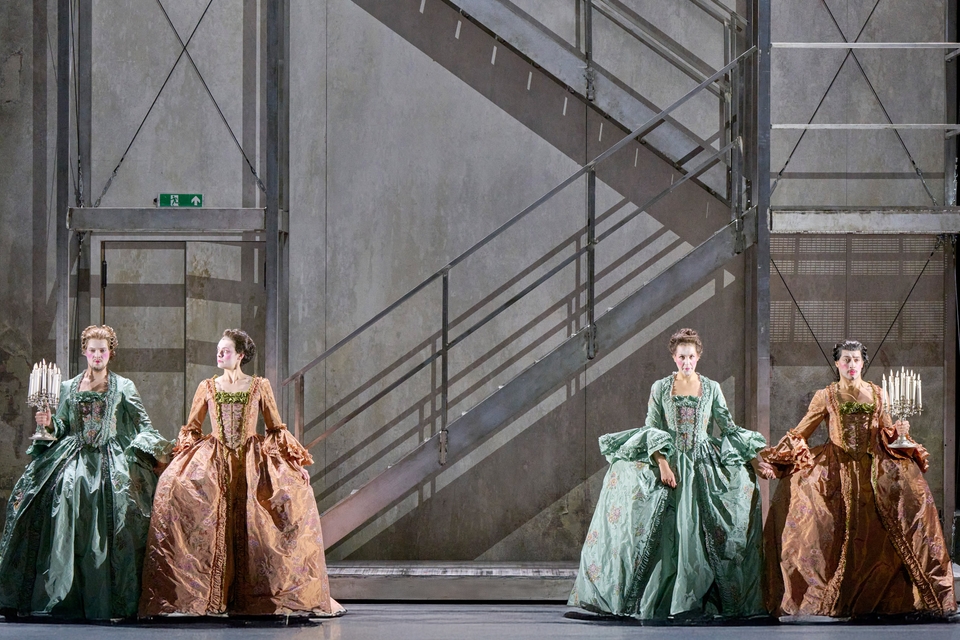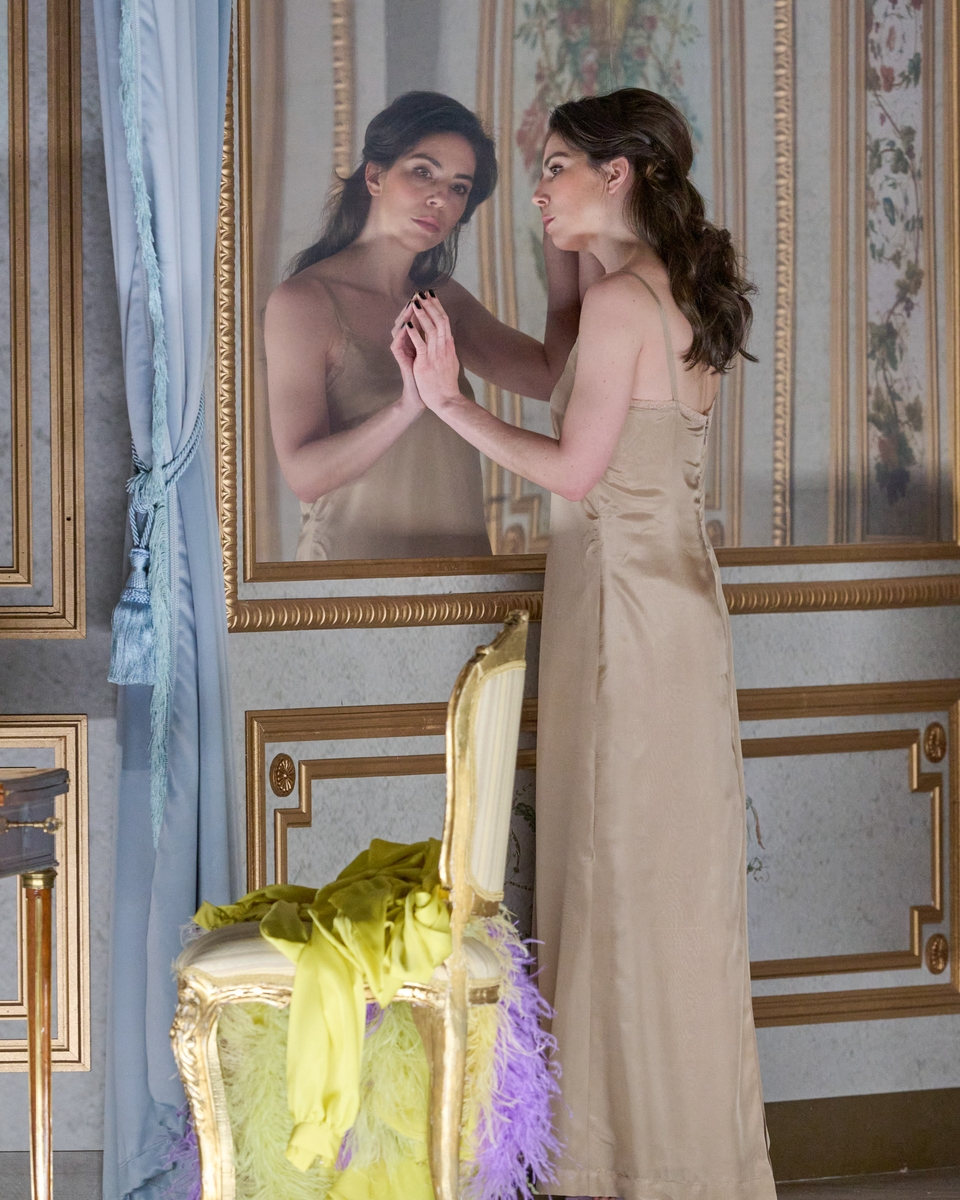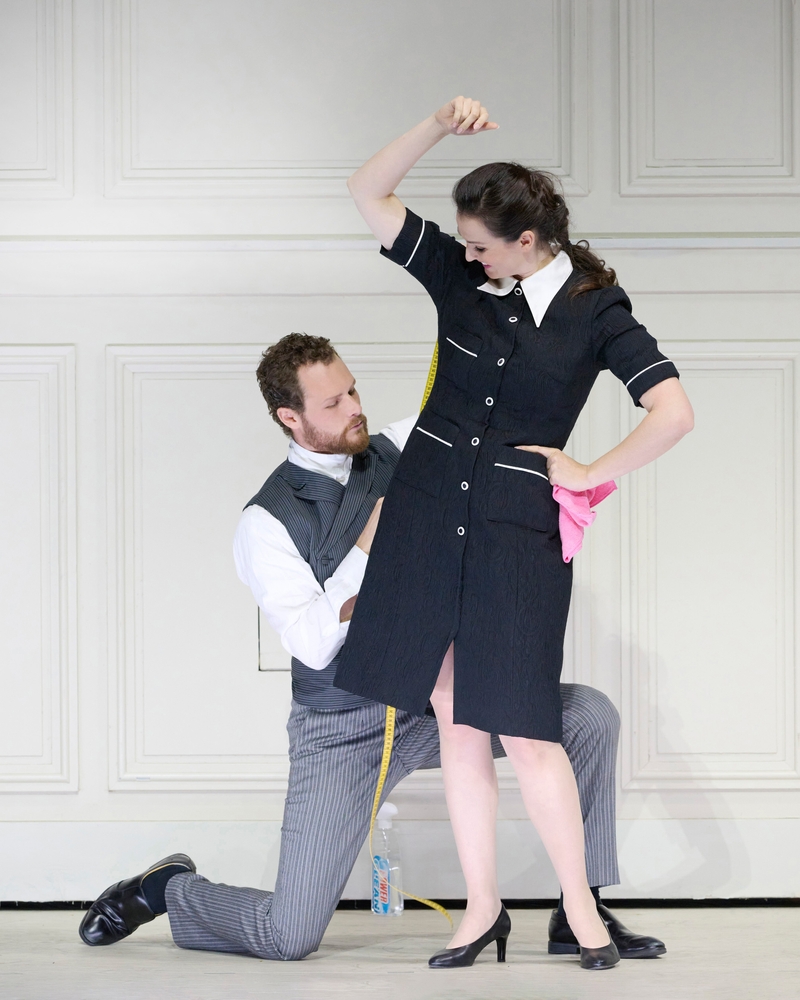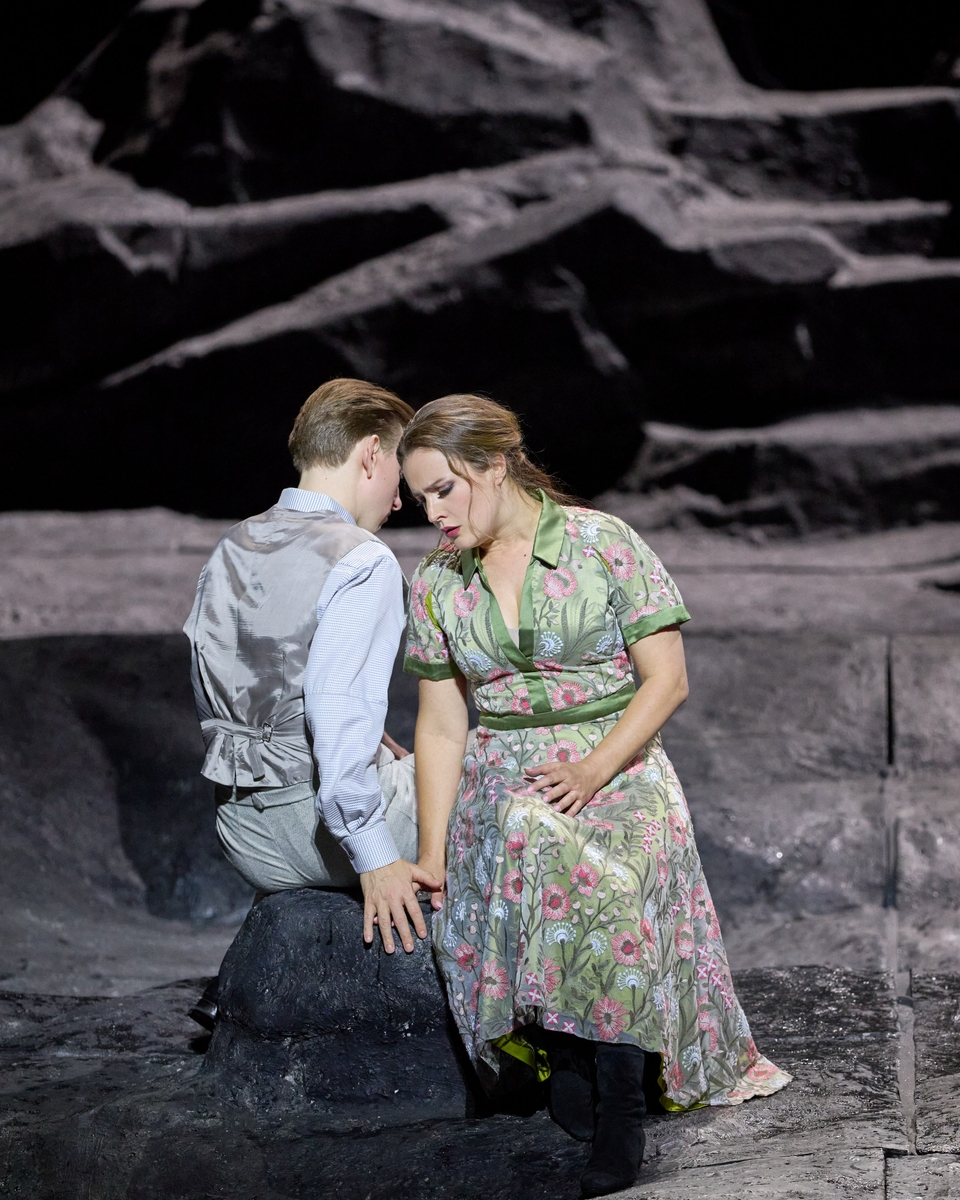Why Mozart is like a giant goal race
Feature |
The perfect Mozart style?
It has certainly happened to many people. After a performance, you hear or read things like: "But that wasn't very Mozartian." Or: "That's exactly how Mozart should be sung!" And sometimes these opinions even contradict each other. So what is "perfect Mozart singing"? What must/should/may it sound like? And why do so many musicians appreciate this composer for so many reasons?
A look at history
During Mozart's lifetime, musicians had plenty of scope for personal interpretation. Ornaments and embellishments, small and medium-sized liberties were not only allowed, but were part of the craft of singing and instrumental playing. Many things did not have to be specially instructed or notated, it was clear anyway: and because everyone did it and it was omnipresent, not many words were said about it. Even more: "The art of ornamentation was per se the art of performance, and anyone who did not master it, for example as a singer, was a dry speller" - according to the knowledgeable Jens Malte Fischer in the Mozart Handbook. If we are to believe the comprehensively educated "pope of critics" Eduard Hanslick, then in the second half of the 19th century "the most beautiful characteristics of Mozart's music were grace, clarity and perfect evenness". The perfect Mozart style?
"If you read the contemporary reports, the extremely contrasting, disturbing and shocking aspects of Mozart's music are emphasized. To reduce Mozart to aesthetic pleasure is therefore to misunderstand him."
Gustav Mahler's Mozart
Things were to change just a few years later. Gustav Mahler, who also made music history as conductor and director of the Vienna Court Opera, revolutionized the style and brought pulsating, intense life. "He liberated Mozart from the lie of daintiness and the boredom of academic dryness, gave him his dramatic seriousness, his truthfulness and his liveliness. Through his actions, he transformed the audience's previously lifeless respect for Mozart's operas into an enthusiasm that shook the house with its demonstrations and even swept the heart of the theater treasurer to unprecedented delights," reported another great man of renown later: Bruno Walter. It was Walter who succeeded Mahler and became one of the leading Mozart interpreters of his time.

Peter Kellner as Guglielmo & Emily D'Aangelo as Dorabella and Federica Lombardi as Fiordiligi & Filipe Manu as Ferrando in Così fan tutte
The myth of the Mozart ensemble
After the years of the Nazi regime, the famous Mozart ensemble finally blossomed in Austria around the previously persecuted conductor Josef Krips, which today has an almost mythical character. A new Mozart style was born, which drew entirely from cohesion and harmony. The music director of the Vienna State Opera, Philippe Jordan, points out that this Mozart ensemble was a child of its time and not the result of any strategy: "We must not forget that the ensemble was not born out of any planning after the Second World War, but was a consequence of the times. It was not simply decided: 'We are now founding a Mozart ensemble!' Instead, there were few opportunities to travel, a fortunate confluence of great singers and conductors and an increasing demand for records.
The fact that the singers were tied to one place resulted in consistency and consistency in their work together. And this is how this benchmark style and the corresponding ensemble came about. "The most important thing if you want to re-establish a Mozart ensemble in this day and age is the time factor. Because it simply takes a lot, a lot of time and a lot, a lot of joint work to develop something cohesive and groundbreaking. For this reason, we have developed the Da Ponte cycle over the last few years with a group of regular singers, a director and a conductor in order to be able to grow together as a group."
The thing with vocal hygiene
Talking to singers, two aspects of Mozart singing soon emerge: firstly, Mozart is good for the voice, and secondly, Mozart is particularly challenging to sing. Slávka Zámečníková, for example, who recently shone as Pamina in the premiere of The Magic Flute and will be on stage as Susanna in Le nozze di Figaro at the end of March, points out the special "health aspect" of Mozart's music: "For me, Mozart really is vocal hygiene. When I have the feeling that I'm not feeling quite well vocally, that I've drifted off somewhere, I pick up some Mozart sheet music and sing: specifically Donna Anna from Don Giovanni. And immediately Mozart puts my voice back in order. How does that happen? I don't know. But it always works! With Mozart, I simply notice when little slip-ups creep in that I don't want to allow myself."
Anti-sloppiness
Almost always, when artists talk about Mozart, his music is cited as kryptonite against any form of musical hallodri. Hanna-Elisabeth Müller, the celebrated Nozze Countess of the Vienna State Opera: "With him, you can't cheat, you can't cheat anything. That is precisely the reason why his operas are so healthy for us singers - because there are no tricks, because we are required to be as honest as possible." Brigitte Fassbaender, one of the great (not only Mozart) interpreters of the golden opera decades, is no different: "You can't allow yourself the slightest sloppiness, not even the slightest hint of a stage routine.
Mozart is also the greatest challenge for conductors, and his works are also the most difficult for an orchestra: because you hear everything and almost every instrument is conducted as a soloist. With Mozart, everything is relentlessly audible. So it takes incredible meticulousness and the utmost precision." And it requires squaring the circle, namely the art of reconciling two different aspects at the same time: Vocal power, but also fine control. This is described by Michael Schade, who shaped the house for many years and was not only responsible for all the major Mozart roles here. "Mozart can be compared a little to a giant slalom."
"Singing loudly and mercilessly is easy, but combining energy with delicacy is difficult!"
Mozart, the challenging one
It simply demands everything: knowledge, vocal technique, stylistics, ability. That's why everyone should ideally spend a lifetime with it, no matter what other repertoire they cover. And if not on stage, then at least as 'cultural training'." Adam Fischer, honorary member of the Vienna State Opera, a hundred-time Mozart conductor at the Haus am Ring and closely associated with the composer since his childhood (namely as the third boy in The Magic Flute), adds another important aspect: "Why is Mozart difficult to sing? Also because he created his roles for very specific singers, in other words he wrote the parts directly onto their vocal chords, so to speak.
But that puts us in a situation today where we have to find singers whose voices and abilities match those of the historical models as closely as possible. Which, of course, is hardly possible. Just as a comparison: it's like having a perfectly tailored suit for a particular person - and now having to find someone in second place who fits the suit exactly. Very, very difficult!" And he points out another aspect: You shouldn't become too cautious with Mozart, just to sound transparent and translucent, then "better a squeak than too much caution!"
The risk of beauty
The particular challenges of singing can, of course, also reflect what the stage characters have to go through at a decisive moment in the plot. Michael Schade describes such moments: "Mozart repeatedly shows love in his tenor heroes as so beguilingly beautiful, but also so incredibly endangering that it is literally a matter of one's entire existence. You are on a knife's edge. Either it will be the most glorious thing in the world or the greatest pain. Mozart places these passages precisely in the passaggio, i.e. in the transition between two vocal registers - a delicate area for singing. It can sound wonderful if you create the necessary lightness. But if you don't guide the voice correctly, it can suddenly break. This extreme situation is transferred to the interpretation. If it succeeds, it becomes so fascinating that the audience holds its breath."
Mozart is like speaking
So how do you do it right? Slávka Zámečníková: "For me, Mozart is always coherent when it sounds as if you are simply speaking. As if singing is no work or effort, nothing 'artificial', but the most natural thing in the world. It's about finding a middle ground. Not too strict and too academic, but also not too emotional and romanticizing, but in balance: technique, emotion, knowledge, intelligence, expression." Similarly, Philippe Jordan: "Mozart requires a special purity. In other words: technical perfection and nobility of sound, clean intonation, clarity, instrumentally conceived and guided voices and often a youthfulness. In addition, an incredible refinement, a sense of ornamentation and articulation, and of course a precise treatment of the text."
And Hanna-Elisabeth Müller: "If I had to explain Mozart to someone, it would perhaps be like this: Mozart is the purest form of music-making because it requires the greatest possible clarity and openness. Everything this music needs is in the notes, you don't have to add anything, you can't leave anything out. The best thing in terms of interpretation is to sing the works unchanged, exactly as they were written. Everything you need for a rendition is already contained in the music. You just have to follow Mozart and trust him. That's the beauty - and the difficulty."
Every note with love
Finally, once again Adam Fischer, who knows how to turn the ideal Mozart interpretation into something universal: "Perhaps", he says, "what ultimately applies to all composers simply applies to Mozart: every note that you sing or play must be infinitely important to you and you must be convinced of its correctness and significance. If you only play something because it's written in the notes, then that's not real music-making, it's just playing by the book. And we want to guard against that!"


